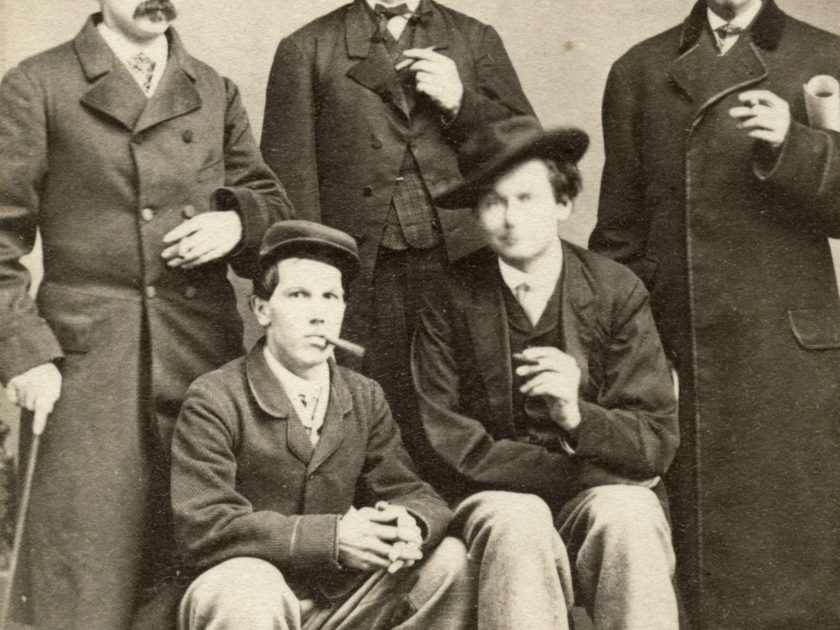The thick undergrowth of The Wilderness made it almost impossible to determine friend or foe during the battle on May 6, 1864. Federal troops powered through dense woods and rebel volleys as best they could. At one rough patch, 1st Sgt. Joseph Bell Kemp and his comrades in the 5th Michigan Infantry struggled forward when shots struck close to home.
“His companion on his right suddenly plunged forward with a bullet through his head. The man on his left had screened himself by the trunk of a sapling, and was bandaging a gaping wound in his leg with a strip torn from his shirt. Kemp was comparatively alone,” noted a writer, who interviewed Kemp years later.
Kemp paused to deal with his fouled musket. Suddenly, three gray forms materialized from the woods, one carrying the regimental colors, and no more than 20 yards away. Kemp loaded his gun and took off after them, bringing one down with a shot.

Kemp, above right, is pictured as a first lieutenant in a carte de visite by an anonymous photographer. A note in his hand on the back of the image states, “It is salt that preserves sweetness.” Kemp is pictured again, this time in civilian clothes with his pals Fred, Frank, Wes and Charlie, in a carte de visite by Slee Bros. of Poughkeepsie, N.Y. The image is dated on the back Nov. 10, 1865—about four months after Kemp mustered out of the army. Also on the back, in his hand, is “Eastman’s Bummers on a Burn.” No men with the surname Eastman served in the 5th. Rick Carlile Collection.
The fight then turned more personal. “Two and fro, amid the tangled foliage, trampling here upon a wounded man and stumbling there over a corpse, the three reel, until by a lucky chance, the Michigander disables the second man, and the fight is now on more equal terms,” according to the historian. “Backward, forward, to the right and to the left, the breath of both contestants coming in gasps, their vision clouded by the heat of passion and the smoke of the battle; reeling, striking, struggling, each for the other’s life, until the supreme moment came for the man in gray, and he in blue grasping the colors, which had so nearly cost him his life, staggers through the underbrush to rejoin his companions.”
This was not Kemp’s first fight. A year earlier he had suffered a wound at Gettysburg. A month after his capture of the flag in The Wilderness, he fell into Confederate hands at Petersburg. Kemp spent the rest of the year as a prisoner, before he returned to his regiment and served through the war’s end. He mustered out as a captain in July 1865.
In 1899, Kemp received the Medal of Honor for his courage in The Wilderness. The citation notes that the flag he captured belonged to the 31st North Carolina Infantry. The regimental historian of the 31st vehemently denied the claim, however, indicating that the regiment was many miles away, and not present in The Wilderness. Moreover, the colors were surrendered with the regiment in North Carolina in 1865.
According to the Record of Service of Michigan Volunteers in the Civil War, the flag belonged to a still unidentified Virginia regiment.
Kemp lived until 1917.

